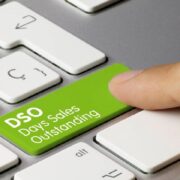The decision as to whether to hire a bookkeeper if you’re running a small business, may not always be an easy one. It may be that you feel you can handle your accounts yourself, or that your business cannot afford the services of a professional bookkeeper. If you’re undecided, read through the information below to help you know when it makes sense to hire a bookkeeper as the owner of a small business:
What are the tasks of a bookkeeper?
Bookkeepers have many daily and monthly tasks that they carry out on a business owner’s behalf, and they include:
- Tracking sales, purchases, payments and receipts in an accurate and orderly manner
- Gathering, collating and recording daily financial data, and storing it in general ledgers
- Preparing records of financial information for an accountant to access whenever they might need it
- Maintaining the design of internal business processes, and reviewing them periodically
Does your small business need a bookkeeper?
Most owners of small businesses are not so enamoured with recording financial transactions and keeping ledgers, preferring to focus on their business and helping it to grow and succeed. Without prior knowledge of bookkeeping and what it entails in order to stay inline with the IRS, the daily tasks can quickly become overbearing and things like transactions being missed, or mistakes being made when recording data, might soon become a frequent occurrence if you attempt to tackle the bookkeeping duties yourself. In this case, hiring a bookkeeper simply makes good business sense; reducing the burden and allowing you to do what you do best, manage your business.
In what other ways can a bookkeeper help your small business?
Without a good bookkeeper, your accountant will struggle to keep themselves up to date, and as bookkeepers use the same financial recording methods as accountants, this should mean that they can give the accountant your financial data quickly and easily for them to begin processing.
On a day to day basis your bookkeeper will take your receipts, invoices and other financial transactions, record the information in accounting software using sound accounting methods, and work closely with you to help make sense of the numbers. In addition to these daily tasks, a bookkeeper will be able to advise you on the following:
- POS tools that can help streamline your business
- Payroll services that can make the way you pay your staff much simpler
- Help to correct errors made by less experienced staff
- Accounting software and how to use it
Your bookkeeper should also be there to offer you daily support, and in some cases, can even become like a business partner who helps you to keep things running smoothly.
For your small business to run smoothly and continue going in a forward direction, it would benefit from the services of a bookkeeper, and they can pay dividends for you and your business in the long run. For the official reporting and business advice on a higher level, you’d of course need an accountant, but for both to function at their maximum, they really do need each other.













Comments